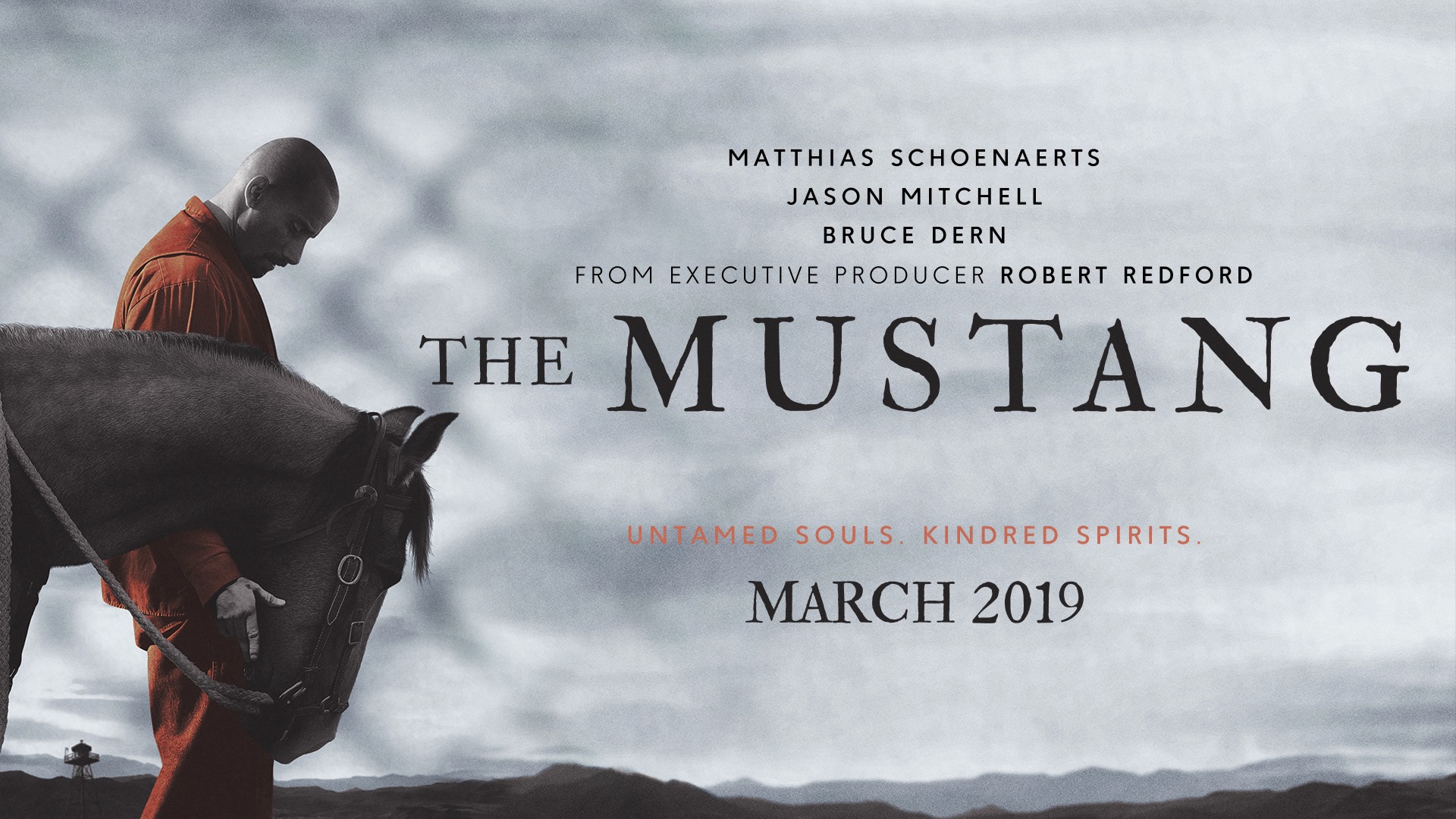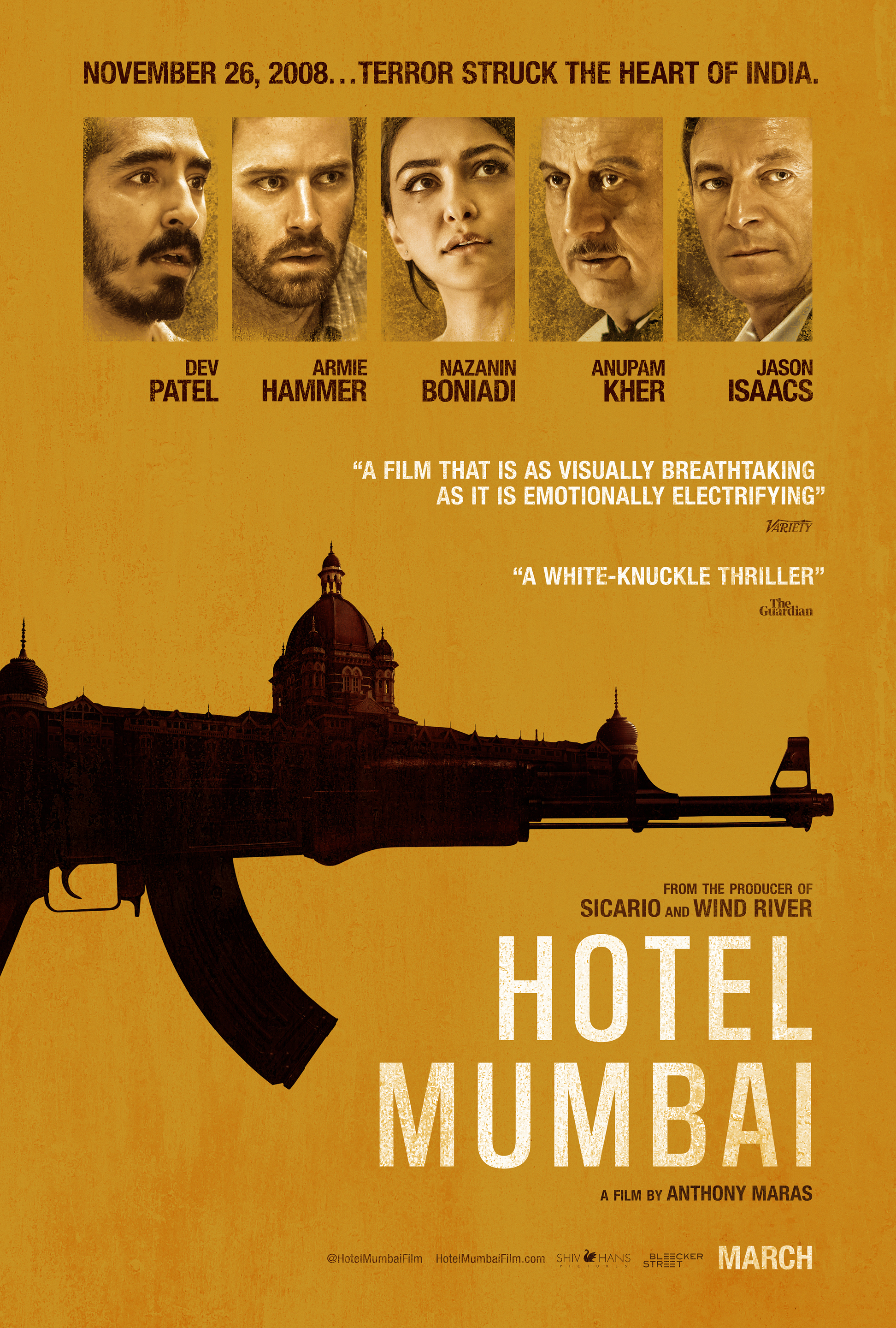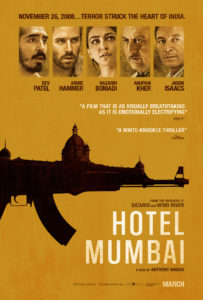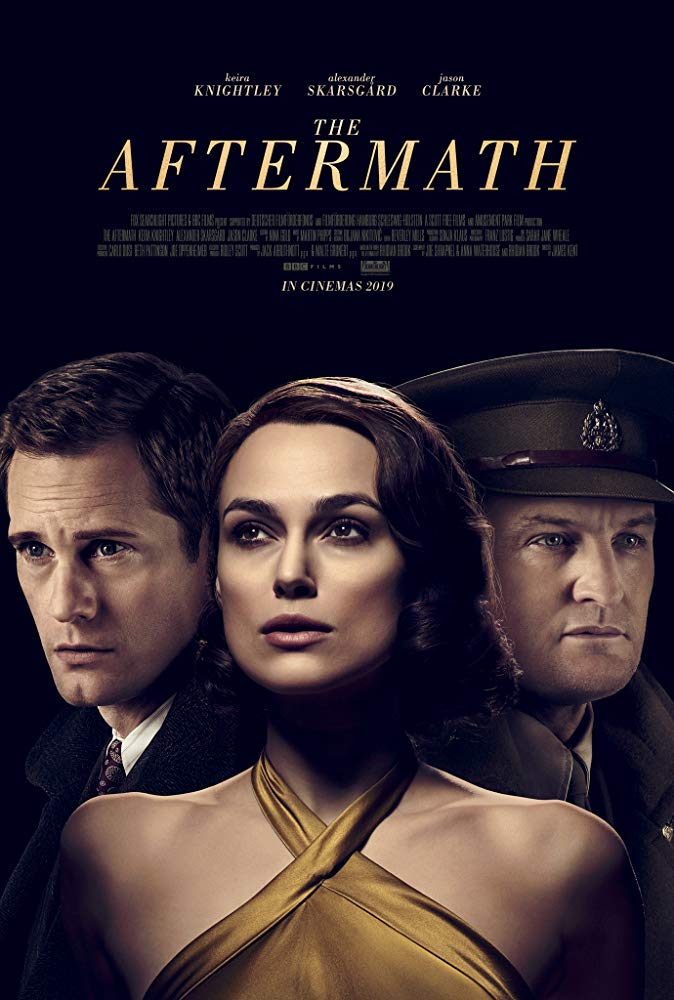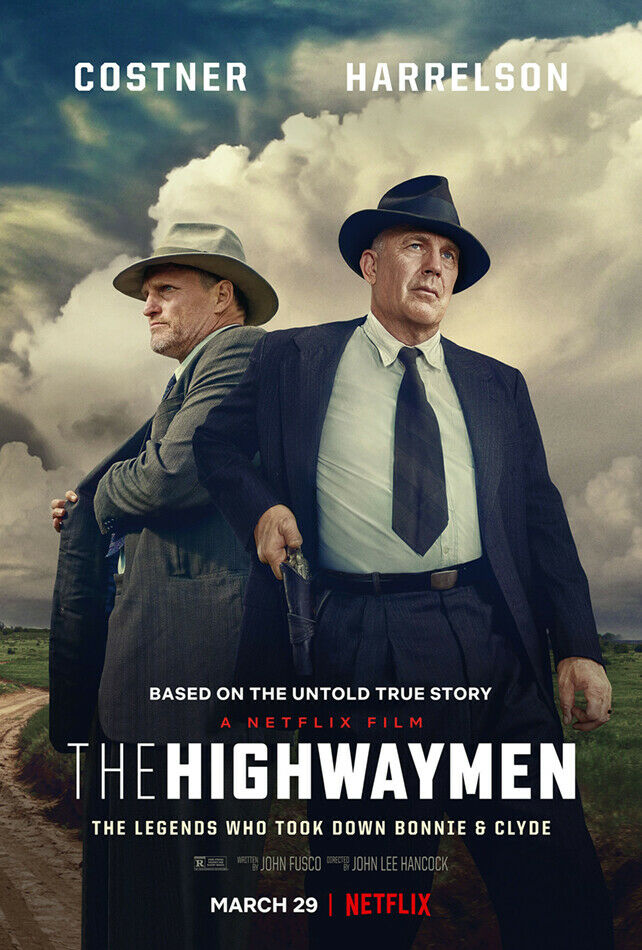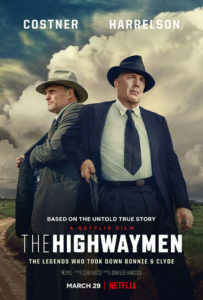The Mustang
Posted on March 28, 2019 at 5:45 pm
B +| Lowest Recommended Age: | Mature High Schooler |
| MPAA Rating: | Rated R for language, some violence and drug content |
| Profanity: | Very strong and crude language |
| Alcohol/ Drugs: | Drug dealing and drug use |
| Violence/ Scariness: | Peril and violence, animal abuse, discussion of domestic abuse |
| Diversity Issues: | None |
| Date Released to Theaters: | March 29, 2019 |
| Date Released to DVD: | June 10, 2019 |
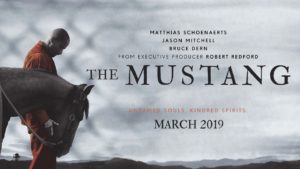
Prisoner Roman Coleman (Matthias Schoenaerts) uncomfortable in his orange Department of Corrections jumpsuit, uncomfortable in a room with another person, uncomfortable in his own skin, does not answer when the other person, Connie Britton as a counselor, asks him a hypothetical question about how he would respond to seeing a woman he loved kissing someone else. She tries something less hypothetical, asking for his thoughts about his years in isolation and how he feels about being re-integrated into the general prison population. “I’m not good with people,” he says, and we can see he is right.
And so, Roman is assigned to shovel manure. The prison participates in the federal government’s program to train wild horses so they can be sold. As we see in the film’s opening scenes, it is thrilling to see the wild horses race across gorgeous natural settings, the embodiment of the American spirit of freedom and like a whole verse of their own from “America the Beautiful.” But there are too many of them even for the 29 million acres across ten states, and so some are captured every year. Many of them are put down. But some are given to prisoners so they can learn skills that will help them after they leave. The prisoners tame the horses, which are then sold, many to the government itself for border patrol.
Nothing could be more natural than prisoners relating to angry, terrified wild horses in cages. Because he is so uncooperative, insisting that he does not get along with people, he is assigned the job of shoveling manure. But that brings him to where the horses are, horses that once were wild and are now confined to cages. Roman is drawn, naturally, to the angriest and most terrified of all.
Henry (Jason Mitchell of “Straight Outta Compton”) is one of the inmates who works with the horses, his superior status indicated in the privilege of wearing denim instead of prison orange. He and the civilian head of the horse training program, Myles (Bruce Dern in full grizzle mode) decide to give Roman a chance. But that means Roman will have to learn patience and gentleness. A man whose body and soul have been clenched for as long as he can remember has to learn to relax his shoulders to encourage the horse to calm down.
And that means he has to actually be relaxed, because the horse will know. You can’t pretend. Just as Roman gentles the horse, the horse gentles him. And he goes from being a man who almost sat down at the wrong table when his daughter came to visit because he had no idea what she looked like to someone who for the first time is able to tell her how he feels.
Actress turned first-time director Laure de Clermont-Tonnerre has a real eye for lyrical images and a gift for casting actors of exceptional skill. Schoenaerts, a Belgian actor who has shown a rare gift for supporting performances of quiet power in films like “A Bigger Splash” and “Far from the Madding Crowd” shows a great deal by seemingly doing very little. He is extraordinary in the emotional scene with Roman’s daughter (an excellent Gideon Adlon), but he is just as extraordinary in the scenes with the horse and when he is at last permitted the honor of wearing denim. Mitchell, in a small role, continues to be one of the most appealing performers of his generation with enormous charm.
The script wavers at times, and audiences should know that despite the involvement of Robert Redford, who played the horse whisperer, this is not the Hallmark movie version of the story. But Clermont-Tonnerre is a gifted filmmaker and the performances she whispered from her cast make Mustang an impressive debut.
Parents should know that this film has very strong language, drug dealing and drug use, description of violence, including domestic violence, animal abuse, peril and violence.
Family discussion: Why was Roman drawn to Marquis? How did working with Marquis make Roman want to talk to his daughter?
If you like this try: “Greenfingers,” starring Clive Owen and Helen Mirren, also based on the true story of prisoners who find purpose in a special program, this one gardening and the documentary “Dogs on the Inside” about a prisoners training guide dogs.

